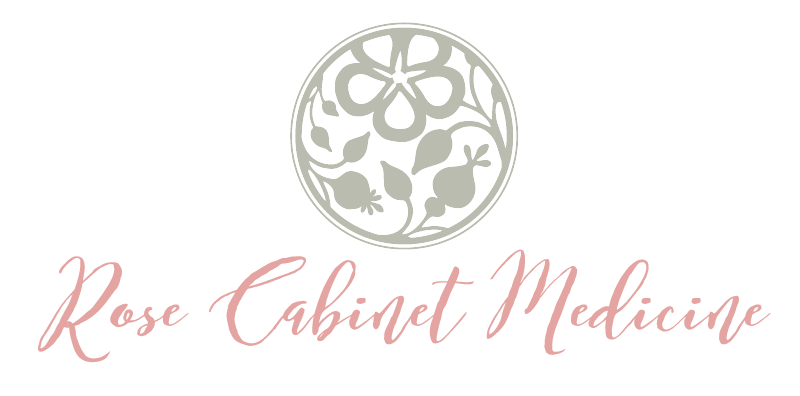The Specific Carbohydrate Diet & a Major Lifestyle Change
More by Guest Blogger Kristy Regan, candidate for Masters of Science in Nutrition.
I was highly motivated to begin the new diet (SCD) immediately as I hated being sick. My friends were surprised that I would so easily give up the foods I loved. I can’t tell you how many times people have said to me, “Oh, I would just die if I couldn’t eat croissants/ice cream/insert favorite food here.” But for me, it was part of choosing health and wanting to feel whole again. And even though I found SCD very challenging it taught me immense amounts about food related symptoms and how I process specific foods. Over time, I learned that I can still prepare beautiful meals for family and friends that are also healthy and extremely enjoyable for me.
Here’s my list of SCD Frequently Asked Questions:
I’ve never been good at diets. How do I know this will work for me?
For most people, SCD becomes less of a short-term diet and more of a life style change. It can be an integral part of the healing process, easing IBS and inflammatory symptoms. Many people who have been on SCD long term say they feel much better and have more energy.
Which individual foods can I eat on the SCD Intro diet?
Homemade chicken broth, beef broth, carrots, roasted chicken, roasted turkey (no additives/no lunch meat), roasted lean pork (such as tenderloin), broiled fish,
beef broth, broiled hamburger, eggs, dry curd cottage cheese, 24 hour homemade yogurt, honey (small amounts), gelatin/homemade jello made with Welch's grape juice
(100% grape in a jar, any color, not frozen, not with calcium) or apple cider (cider only; commercial apple juice is not legal).
My symptoms aren’t out of control - can I skip the intro diet and just go to the regular diet?
No, for the diet to work, the introduction diet must be followed for two days minimum and five days maximum.
How do I know when I can add new foods and at what intervals?
After the introduction diet, and when cramping or diarrhea aren’t present, peeled and cooked fruit, ripe spotted bananas and peeled and cooked vegetables can be added to the diet.
Foods should be introduced one at a time, with a two to four day interval between new foods.
An entire list of legal/illegal founds can be found here
I don’t have time to make coconut milk, yogurt, etc. – why can’t I just buy them at the grocery store?
You must make or buy food where ALL ingredients are listed. Labeling in the US dictates that if less than 2% of an ingredient is included, it doesn’t need to be listed. Often unlisted ingredients include sugar or starch that isn’t allowed on SCD. Most commercial brands of coconut or almond milk contain starches and sugars. Label reading is particularly important because products may include sugar or starch products that you’re unfamiliar with. Refer to the legal/illegal list
Cooking becomes easier once you get used to making specific items. If you don’t have time to cook, it’s possible to buy some SCD legal foods.
Some SCD legal food websites: Wellbees SCD Bakery JK Gourmet
Is it ok if I cheat once a week or with just one food?
No, SCD isn’t like other diets where a little cheating is ok. Since bacteria are so small, a little bit of the wrong food will allow them to thrive and multiply.
That said it’s important to talk to your doctor about the diet in conjunction with antibiotics or other methods of healing. Most doctors believe the diet is meant to control the symptoms of SIBO but that it won’t necessarily “starve” the bacteria.
After two years of following the SCD fanatically, one of my doctors recommended I try following a “loose” SCD, so it really depends on your specific situation.
My family is worried about me because I’m rapidly losing weight and they think the diet is crazy.
Some people will lose weight because they have malabsorption or other issues. Some may initially lose weight because SCD entails a way of eating is very different than their previous lifestyle. SCD should be undertaken under the guidance of a doctor and/or a nutritionist. A medical professional will be able to recommend high calorie and/or high fat items that can be added to the diet to maintain weight.
I’m on the diet but I’m still having IBS symptoms. Should I give up?
No! It’s very helpful to keep a food and symptoms diary while you’re on the diet. There may be foods that were introduced too quickly or that are not tolerable. Keeping a food and symptom diary can help you and your doctor see trends in what you’re eating and your symptoms. If food isn’t tolerated, it can be removed and reintroduced after a month.
High FODMAPs foods are sometimes an issue for people. FODMAPs information can be found here:
I’m so frustrated about not going out with my friends/family to restaurants and parties.
Parties: If you know the host/hostess, it can be helpful to bring some of your own food and put it on a plate or out to share so you don’t have to feel like you’re not eating at all. It’s ok to drink small amounts of dry wine (no dessert wines). It’s good to eat before going to a party so you don’t feel deprived once you’re there. If you can afford the time and money, it’s often the most fun to have a party at your house. That way you can control the menu and serve only SCD friendly food. You can give friends SCD recipes to prepare or hire a caterer if possible so you don’t have to make everything by yourself.
Restaurants: It’s helpful to have a couple restaurants where you can develop relationships with the Chef and wait staff and feel respected and safe. Most chefs are used to dealing with special diets and would much rather get a phone call before a meal than to receive many special requests when they are in the middle of a busy service. If it’s a new restaurant, you can bring your own salad dressing or request lemon and olive oil. At most restaurants you will be able to order a basic protein and cooked vegetable side but be clear about no seasoning other than salt and pepper, no marinades, etc. Some people print out a laminated card that they can carry to restaurants that says what they can/can’t eat.
I’m torn between making traditional food for my family and staying on the diet for myself.
It’s challenging to be eating a different diet than the rest of your family. As you become more familiar with SCD recipes and your food variety increases, it becomes easier to make SCD legal food that everyone likes. Your health practitioner should be able to help you give family favorite recipes a “makeover” or introduce new recipes that can become traditional favorites.
It’s also important for your entire family to understand how very crucial it is for you to stay on the SCD diet. If you’re not well, you won’t be able to support your family and your current medical issues may become much more serious.
Stay tuned to hear more from Kristy about how she is doing!



